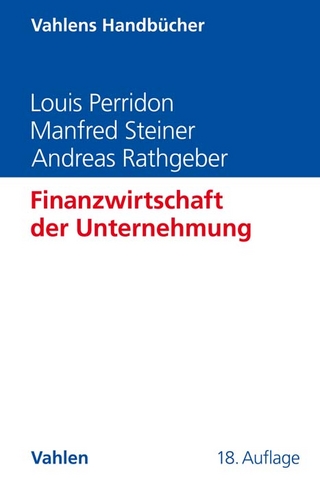
Islamic Management Practices in Financial Institutions
Case Studies from Islamic Economics, Banking and Finance
Seiten
2023
Routledge (Verlag)
978-1-032-15359-9 (ISBN)
Routledge (Verlag)
978-1-032-15359-9 (ISBN)
This book draws on a range of theoretical foundations, approaches and management practices that are culturally and jurisdictionally appropriate in several Muslim countries. As such, it contributes to an emerging specialism in comparative management and leadership theory that is oriented towards a broader and more diverse set of perspectives.
This book draws on a range of theoretical foundations, approaches and management practices that are culturally and jurisdictionally appropriate in several Muslim countries. As such, it contributes to an emerging specialism in comparative management and leadership theory that is oriented toward a broader and more diverse set of perspectives, particularly from the non-Western world, given that the importance of values, ethics, and culture have recently been recognized as a key contributing factor to management knowledge development.
The author offers an in-depth overview of the Islamic management strategies that have successfully been implemented in selected Malaysian banking and non-banking financial institutions and then outlines how the application of such strategies leads to increased integrity, efficiency and performance. The book is divided into three parts. The first part deals with the introduction, historical background and methods used in collection of data. The second part consists of a range of real-world case studies, while part three deals with the approaches to be used in the teaching of these cases followed by conclusions and recommendations.
These cases studies map the strategic aspects of organizational structure and illustrate the motives that influence Malaysian managers’ choices in seeking specific responses to the situations at hand, which are in harmony with the traditions in Islamic inquiry. As such, management scholars can build a foundation for conceptual and theoretical propositions relevant to Muslim culture and environment that will have practical significance. The book provides a wealth of information and enables researchers not only to identify the determinants of knowledge structure and its context but also the evolution of practice.
This book draws on a range of theoretical foundations, approaches and management practices that are culturally and jurisdictionally appropriate in several Muslim countries. As such, it contributes to an emerging specialism in comparative management and leadership theory that is oriented toward a broader and more diverse set of perspectives, particularly from the non-Western world, given that the importance of values, ethics, and culture have recently been recognized as a key contributing factor to management knowledge development.
The author offers an in-depth overview of the Islamic management strategies that have successfully been implemented in selected Malaysian banking and non-banking financial institutions and then outlines how the application of such strategies leads to increased integrity, efficiency and performance. The book is divided into three parts. The first part deals with the introduction, historical background and methods used in collection of data. The second part consists of a range of real-world case studies, while part three deals with the approaches to be used in the teaching of these cases followed by conclusions and recommendations.
These cases studies map the strategic aspects of organizational structure and illustrate the motives that influence Malaysian managers’ choices in seeking specific responses to the situations at hand, which are in harmony with the traditions in Islamic inquiry. As such, management scholars can build a foundation for conceptual and theoretical propositions relevant to Muslim culture and environment that will have practical significance. The book provides a wealth of information and enables researchers not only to identify the determinants of knowledge structure and its context but also the evolution of practice.
Khaliq Ahmad served IIUM for 27 years and joined as Research Professor at Putra Business School after serving as full Professor at Qassim University, Saudi Arabia.
Part 1. 1. Background to Management Practices 2. Method of Data Collection & Discussion Part 2. 3. Yayasan Pembangunan Ekonomi Islam Malaysia 4. An Era Of New Beginning- Bank Islam Malaysia 5. Bank Muamalat Follows the Suit 6. Bank Rakyat Facing the Members 7. Being Glocal -Al-Rajhi Bank 8. Lembaga Urusan Tabung Haji 9. Managing Risk by Takaful Malaysia Part 3. 10. Teaching Notes and Pedagogy 11. Conclusion and Suggestions Bibliography
| Erscheinungsdatum | 04.01.2022 |
|---|---|
| Reihe/Serie | Islamic Business and Finance Series |
| Zusatzinfo | 10 Tables, black and white; 8 Line drawings, black and white; 8 Illustrations, black and white |
| Verlagsort | London |
| Sprache | englisch |
| Maße | 156 x 234 mm |
| Gewicht | 453 g |
| Themenwelt | Geisteswissenschaften ► Religion / Theologie ► Islam |
| Sozialwissenschaften ► Soziologie ► Spezielle Soziologien | |
| Wirtschaft ► Betriebswirtschaft / Management ► Finanzierung | |
| Wirtschaft ► Betriebswirtschaft / Management ► Marketing / Vertrieb | |
| Betriebswirtschaft / Management ► Spezielle Betriebswirtschaftslehre ► Bankbetriebslehre | |
| ISBN-10 | 1-032-15359-8 / 1032153598 |
| ISBN-13 | 978-1-032-15359-9 / 9781032153599 |
| Zustand | Neuware |
| Informationen gemäß Produktsicherheitsverordnung (GPSR) | |
| Haben Sie eine Frage zum Produkt? |
Mehr entdecken
aus dem Bereich
aus dem Bereich
warum unser Geld stirbt und wie Sie davon profitieren
Buch | Hardcover (2024)
FinanzBuch (Verlag)
CHF 41,95
Erinnerungen des Chefökonomen
Buch | Hardcover (2024)
Vahlen (Verlag)
CHF 34,85


